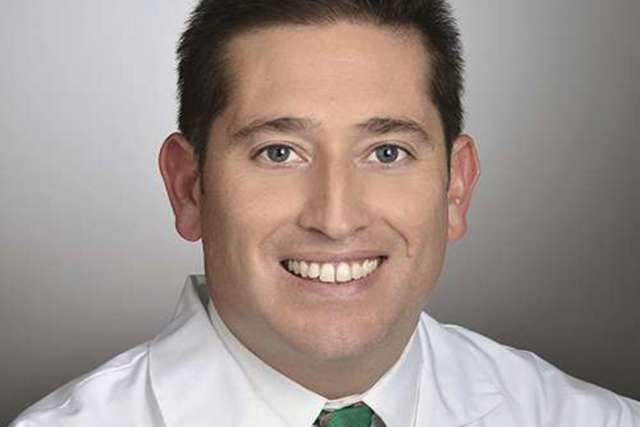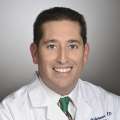UCLA pediatric oncologist Dr. Noah Federman, director of the UCLA Jonsson Comprehensive Cancer Center’s Pediatric Bone and Soft Tissue Sarcoma Program and medical director of CTSI Clinical and Translational Research Center, participated in the clinical trial for the newly FDA-approved targeted cancer therapy, larotrectinib.
Larotrectinib is one in a class of drugs known as tyrosine kinase inhibitors (TKIs) that block the action of target genes. Specifically, the drug targets a pan-tropomyosin receptor kinase (TRK) and is designed to work in a variety of different cancer types that have this TRK fusion. Federman was a clinical trials investigator who reported promising results of the drug in the New England Journal of Medicine earlier this year and recently presented the updated integrated sarcoma data set at the Connective Tissue Oncology Society Meeting in Rome.
In the latest update, over 120 patients across many different cancers from more common cancers such as lung and colon cancer to rare cancers such as sarcoma had overall response rates of 81 percent at one year. Specifically, in bone and soft tissue sarcomas, the response was unprecedented with over 93 percent of patients having rapid and durable responses with many patients having complete responses.
“The discovery of this investigational medication that targets the TRK fusion in cancers, both pediatric and adult, is one on the seminal discoveries in oncology in the last decade. We are thrilled to be able to be a pioneer in that here at UCLA Jonsson Comprehensive Cancer Center,” said Federman. “I can say confidently now that we have changed the paradigm in cancer treatment. We will likely no longer be giving these patients aggressive surgeries or even giving patients harmful toxins that can put them at risk short term and long term.”
Federman treated the youngest patient on the trial who was just one month old. “Little Linda” had infantile fibrosarcoma, which is a rare cancer in children that can show up anywhere in the body. There are only about 20 cases per year in the United States. Linda had a large mass that took up 50 percent of her scalp and was growing every day. This clinical trial was the only hope she had left. On the day she turned one month and was eligible for the trial she started treatment and within days the tumor started shrinking. Today, Linda is a rambunctious toddler who loves playing with the animals on her family’s farm.




